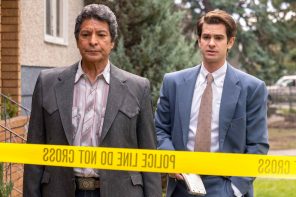Last night, Arizona State Senator Russell Pearce—author of the controversial and now infamous anti-immigration bill SB 1070—became the first sitting lawmaker in Arizona history to lose his seat in a recall election, in a closely fought contest that divided Mesa, Arizona’s strong LDS community between Pearce, who is Mormon, and his challenger Jerry Lewis, who is also a Mormon Republican. Lewis beat Pearce 53% to 46%.
The Mormon grapevine was abuzz with expressions of relief and excitement that the Russell Pearce era has ended.
One source close to the Lewis campaign reported that many Mormons who voted for Lewis felt that a more compassionate approach to immigration was warranted. “I’ve heard [Mormon conservatives] say, ‘We need to love people,’ and ‘We shouldn’t be doing this to people.'”
Many were influenced by the LDS Church’s announcement last summer of a moderate and conciliatory position on immigration that rejected enforcement-only approaches like SB 1070 and called for comprehensive immigration reform premised on principles of loving one’s neighbor and protecting families. The LDS Church also offered public support for the Utah Compact, a multi-faceted set of immigration laws praised nationwide as a sensible and compassionate departure from the SB 1070 approach.
At one point during the recall fight, Pearce was caught on video telling a closed meeting of Mesa Republicans that LDS Church officials had communicated their support for SB 1070 to him privately. LDS Church spokesman immediately rejected Pearce’s claim and reasserted the Church’s view that an enforcement-only approach was “inadequate.”
Pearce’s attempt to claim LDS Church backing caused significant “backlash,” says sources in Mesa. “Even hardcore conservatives did not jump to Pearce’s defense after that. Many people in fact perceive the Church’s announcement last summer as a response to SB 1070.”
Lewis, a former LDS Stake President, found support in the deeply and historically Mormon community of Mesa, especially among younger Mormons, as well as among the community’s Latino voters.




